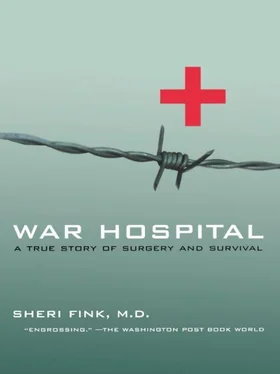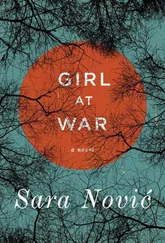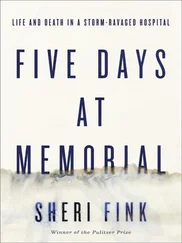When gunfire erupted in that first military action, the sound surprised Ilijaz. It was like a roar. Thoughts raced through his brain:
This is war. We could be killed at any moment, could die in the fight. Just like that.
He returned to the village at day’s end with a sense of shock, unable to meet the frightened eyes of neighbors who he imagined blamed him for stirring up trouble. Overwhelmed, he asked his cousin, Sulejman, to tell the family he was alive. Then he went back to the woods. He spent the night there alone doing nothing, not eating, not speaking, only thinking, surrounded, like the battle-shocked main character in Meša Selimović’s Fortress, “by the only victor: the utter silence of the ancient earth, indifferent to human misery” and filled with “that deepest of all sadness, of defeat that follows victory.”
War was not about fear, Ilijaz realized, it was about dying. It was about killing. It was about the ability of human beings to destroy others of their own species without feeling a thing. Ilijaz racked his brain to think of any other animals that killed their own so easily. He thought of none. Life, which he had dedicated himself to sustaining, was worthless in war. Taking a life came so easily. So quickly.
He felt sick to the depths of his soul, a sickness he was sure was here to stay. He had dedicated himself to saving lives, not taking them. What he had done today so contradicted his own being that he wanted to die himself.
“In that long, sleepless night,” wrote Selimović,” in the black fear that was not of the enemy, but of something within me, I was born as what I am, unsure of all that is me and of all that is human.”
* * *
THREE DAYS PASSED before Ilijaz decided to emerge from the woods and live, not die. It took an extreme concentration of his will combined with the realization that the people he cared about needed him. From now on, he resolved, he would put aside all these tortured reflections. He would not think or feel, only act.
On May 17, 1992, exactly a month after Ilijaz fled to his village, a military runner arrived with a message from a young nurse Ilijaz knew from Srebrenica. She begged him to come quickly to Osmaće to treat a man with a bullet wound to the leg. As a twenty-year-old fresh out of nursing school, she had no idea what to do. The day was clear and warm. Ilijaz hiked uphill to the main Srebrenica-Skelani road, followed it north for two miles, and then wound another two miles up a dirt road to Osmaće, reaching the village at nightfall. By the time he arrived, the patient, whose wounds were not serious after all, had gone.
Ilijaz decided to stay overnight rather than make the trip back in the dark. Without warning, the thunder of an explosion punctuated the air. Then several more. A grenade attack, someone said. Ilijaz could barely remember, from his days of military service, what a grenade was. A man came to tell him that injured people were lying behind the schoolhouse. Several of the small bombs had exploded there, showering the area with splinters of metal.
When Ilijaz arrived, the wounded had been moved inside the schoolhouse clinic. A teenage girl was moaning in pain, most of her knee blown away. Her mother lay dead. A pregnant woman was dead, too. Several others, including the girl’s two younger brothers, had what appeared to be less severe injuries.
Ilijaz examined the girl’s leg. He could tell from the damage that it probably required amputation, but he had only a scalpel with him. Everything was happening so quickly. He wasn’t prepared to do something he had never done before, something that, for the moment, seemed so radical. Someone found some antibiotics and gauze, and Ilijaz cleaned the wound and pressed on it to stop the bleeding. He and the nurse stayed with the girl and her two brothers all night, wondering what to do.
The next morning, a man volunteered to row the children upstream along the River Drina to a small town, Žepa, where an organized hospital was rumored to exist. Their father agreed. After the injured left, Ilijaz and the nurse sat for a moment to process what had happened. In spite of Ilijaz’s long history of squeamishness, the blood and torn flesh hadn’t bothered him much. What disturbed him more was the terrible sense of helplessness he felt, and the realization that the girl would probably not be his last war-injured patient, or his worst. Without knowledge, without colleagues or books to consult, without supplies and equipment, what would he be able to do?
Over the next weeks, the group of armed men and women from Ilijaz’s region grew to about a hundred. They established a base at a high point called Kragljivoda, where several village roads met the main road that stretched from Srebrenica down to the border town of Skelani and the bridge to Serbia. They dug trenches on either side of the road and constructed a real front line. Ilijaz’s neighbor, the minaret builder šefik Mandžic, came to lead the “troops.” A large post office building and a smaller building that had housed a market sat at the forest crossroads. From the windows of the post office building, Ilijaz and the others looked across the Drina River to Serbia and saw tanks firing toward them from the road that zigzagged up Tara Mountain. During the war’s quiet moments—and war has many of these—they sat on the balcony playing cards.
With supplies found in a nearby clinic and the assistance of two medical technicians—his cousin, Sulejman, and a dark-haired refugee named Naim—Ilijaz organized a medical station in a newly built house a couple of yards away from his family’s home. He spent most of his time outside of it, visiting the ill and those injured by mines, shells and bullets. During military actions, he had to stay behind the lines in case one of the men was hurt. It frustrated him to sit back like a child watching his brothers and sisters at work. He wanted to take the same risk as the others and felt fully capable of fighting.
Keeping busy kept his mind off the most difficult subjects—his father’s illness and the whereabouts of his girlfriend, Fatima. She was rumored to have been captured and killed in Bratunac, where paramilitaries had set up a detention center in the primary school and about 700 prominent Muslims were interned, subject to a “trial” presided over by a local Serb nationalist physician. Hundreds were tortured and executed.
One day soldiers from another region crossed Serb-controlled territory to attend a meeting in Ilijaz’s village and brought with them good news. Fatima had left Bratunac in time and was staying with relatives in her deceased father’s birth village. All these weeks, she’d been only eight miles north of him, but, with Chetniks holding much of the mountainous territory in between, she might as well have been on the moon.
Ilijaz wrote a letter on a tiny piece of paper to tell her he, too, was alive. Please send an answer, he wrote, so he could be sure that she was OK.
Some days later, another soldier came with a reply, a small note in Fatima’s handwriting. It confirmed that she had escaped Bratunac unharmed and had gone to live with her mother and younger brother in the village. There, like Ilijaz, she was treating war wounded on an island of territory surrounded by a sea of Chetnik soldiers.
* * *
ON THE FIRST OF JUNE, Ilijaz and a few soldiers lay on their backs in a grassy ravine near Kragljivoda, propped on their elbows, taking advantage of the sunny day. Other soldiers manned front-line positions near a point called Vitez, about a half mile southeast along the Srebrenica-Skelani road.
The bright atmosphere belied the ominous situation. The Serbs had destroyed village after Muslim village, first bombarding them from afar, then, after their populations fled to the forests, arriving with infantry to burn the houses and kill anyone who remained. They had come within a mile of Ilijaz’s village.
Читать дальше












